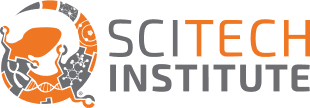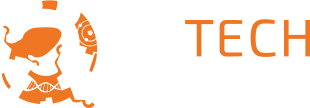
When is a partnership more than a partnership? When it involves STEM education, Intel and community organizations blending their experience, best practices, background and advice, all to benefit local schools and their students. Arizona schools, public, private and charter, have the unique opportunity of unprecedented access to Intel’s wealth of information, practices and knowledge through Arizona’s first STEM School Community of Practice.
So how does Intel’s CoPs work and how will Mentoring and Planning Services (MAP) help local schools and educators?
For decades, Intel has been a leader and innovator in business and a pioneer in the area of Community of Practice (CoP). Intel recognized quite some time ago that information and work silos were no longer a feasible structure for success for the company or for Intel employees. After a study of the market, the new paradigm instituted was based on CoPs. Intel CoPs have proven immensely successful having solved challenges, as well as identified multiple solutions from which to choose but also resulted in an extremely enthusiastic, highly collaborative workforce.
Basically, a problem at Intel is either recognized by management or by employees working on a project. The problem is communicated throughout the company. Anyone who has an interest in or has expertise in a component for the solution of the problem is welcomed to join the “community”. This method draws talent and minds from all over the company, not one area, not one department and not one group. Many minds with a common goal come together to work to find a solution. This “community” then discusses the issues, possible solutions and what is needed to find the solutions. Should an idea come up within the community but no one possesses the particular expertise required, an existing community member invites a colleague, someone with that needed expertise, to join the community…and the community of minds expands. One very interesting and unexpected benefit from this new paradigm became apparent when challenges were recognized well in advance of the challenge mushrooming into an actual problem that had to be solved immediately. Various CoPs also discovered that there were many different ways to get to a solution… through the discussions and sharing of information.
In brief, CoPs allowed Intel to move from silos with no shared learning to a system of eliminated barriers, a sense of community, shared knowledge and effectively eliminated the necessity of continually reinventing the wheel. This system breaks the tribal mentality1 and results in an extremely enthusiastic, highly collaborative and efficient workforce. As Janet McConnell, Technical Project Manager at Intel commented, “…a rising tide raises all boats.” The idea of collaborative learning and problem solving has proven to be immensely successful at Intel and it is this structure and experience that Intel brings to STEM education in Arizona.
Now, for Intel’s MAP. Intel, which has always demonstrated profound corporate social responsibility to their communities, created the Mentoring and Planning Services (“MAP”) program. Through this program, Intel employees volunteer their time and talents to mentor, guide and offer technical advice to schools offering STEM education as well assist non-profit organizations in the area. Intel’s MAP volunteers use the best practices learned from actual experience and work within the CoPs to the mentor, guide and solve problems for the Arizona STEM School Community of Practice. MAP volunteers along with partners Arizona Science Center’s Freeport McMoRan Center for Leadership and Learning and the Maricopa County Education Service Agency (MCESA) will lead and design STEM learning for students and educators. These corporate and community teams are committed to providing technical assistance for participants in the Arizona STEM School Community of Practice by facilitating dialogue among schools and interest-based groups, sharing high quality resources, modeling instructional practices that support thought, design and creativity within a STEM environment, and models of STEM implementation. The team is highly experienced and recognized for their abilities to nurture change through mentoring, coaching, and developing collaborative relationships. Renee Levin, Intel Community Affairs & Education Manager summed up the collaboration and insight into the partnership perfectly. “At Intel, the vast majority of our jobs require advanced education in the STEM areas. Our employee volunteers are excited to participate in this program. They know how rigorous a STEM education path is and they want to help prepare students today for the jobs of tomorrow.”





